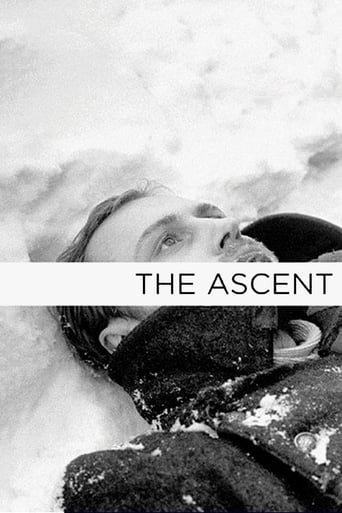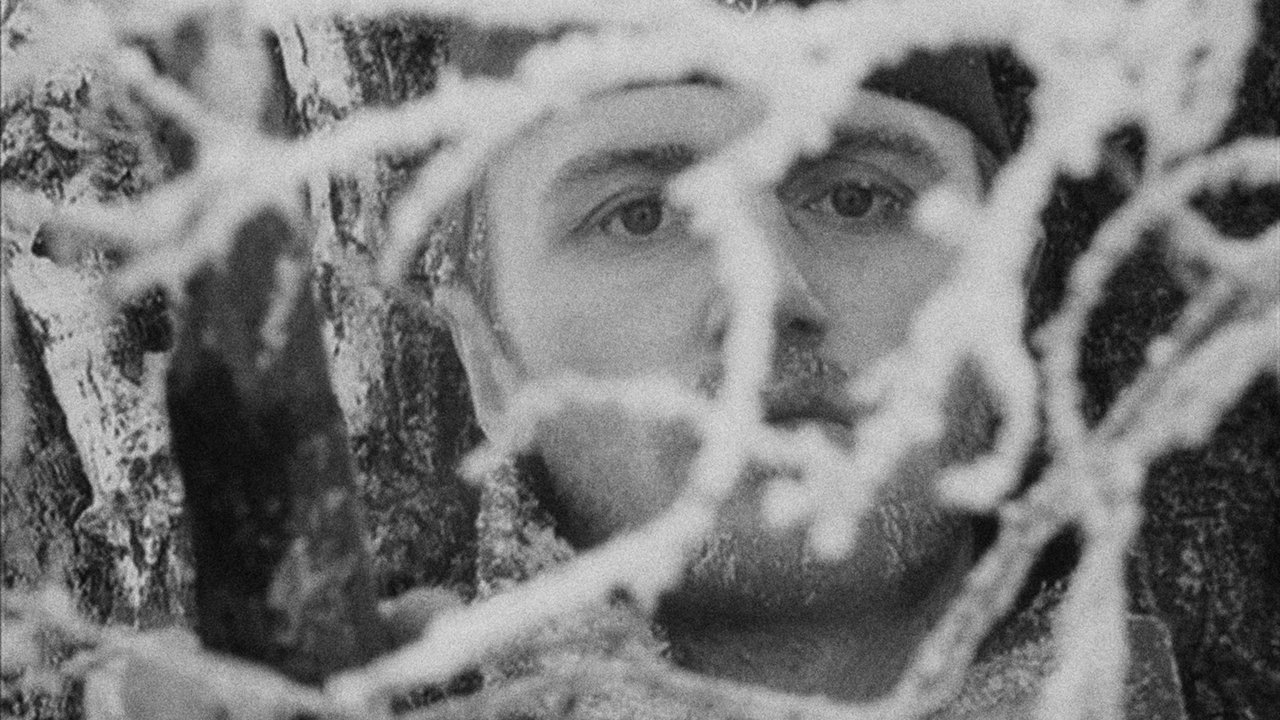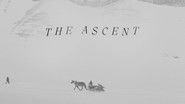Jackson Booth-Millard
I found this Soviet (Russian) film in the 1001 Movies You Must See Before You Die, when I read more into, I found it was selected as the Soviet entry for the Best Foreign Language Film at the Oscars, but was not accepted as a nominee, but it was also rated well by critics, so I hoped for something worthwhile. Basically set during World War II, two Soviet partisans, Sotnikov (Boris Plotnikov) and Rybak (Vladimir Gostyukhin), go to a Belarusian village in search of food. But they are spotted by a German patrol trying to take an animal from the farm of collaborationist headman (Sergei Yakovlev). A large gunfight takes place in the snow, one German is killed, and the two men get away, but Sotnikov (Boris Plotnikov) is shot in the leg, Rybak (Vladimir Gostyukhin) must take him to the nearest shelter. They find the home of Demchikha (Lyudmila Polyakova), mother of three children, however the Germans discover them, and they are captured. The two men and a sobbing Demchikha are taken to the German headquarters. Sotnikov is interrogated by local collaborator Portnov (Anatoli Solonitsyn), a former Soviet club-house director and children's choirmaster, now head of the Belarusian Auxiliary Police and loyal to the Germans. Sotnikov refuses to answer Portnov's questions, despite being brutally tortured by members of the collaborationist police, he gives them no information. But Rybak tells as much as he thinks the police already know, hoping to live and attempt to escape later. The headman is then suspected of supporting the partisans, and teenager Basya Meyer (Viktoriya Goldentul), daughter of a Jewish shoemaker, are imprisoned in a cell together for the night. The next morning, all prisoners are lead out to be hanged, Rybak persuades Portnov and the Germans to let him join the police, while Sotnikov and the others are executed. The villagers vilify Rybak as he heads back to camp with his new comrades, he realises what he has done, he attempts to hang himself with his belt, but he fails. A policeman comes to see Rybak, telling him that their commander wants him, and leaves him alone in the courtyard, Rybak stares out of the door, he begins to laugh and weep. Also starring Lyudmila Polyakova as Demchikha. Filmed in monochrome black-and-white, this film was the fourth and last feature completed by director Larissa Shepitko, before her fatal car crash, it is an interesting story about desperation to survive, cowardice and collaboration, the scenes in the wintery conditions are most memorable, a worthwhile war drama. Good!
Armand
it is not exactly a good film. maybe, it is not a masterpiece. it is perfect. and that is all. the image, the acting, the music, the message. as pieces of a clock. Anatoly Solonitsyn in a extraordinary role, different by Rubliov frame. Boris Plotnikov as one of masters of the nuances who defines its character. and a great director. a pure Christian movie from Soviet period. the skin is red, the essence is profound Orthodox. and not only for magnificent story. but for the use of many traditional Russian iconography motifs and symbols. a film like an experience. the mixture between white and black, the excellent science of detail, the acting as a form of catharsis. must see it ! not only for artistic value or for a real extraordinary cast. but for a chain of emotions who can become experience. a perfect film. a memorable meeting.
MartinHafer
This is an interesting film that might come as a bit of a surprise to Western audiences not familiar with the Russian Front during WWII (referred to by the Russians as 'The Great Patriotic War'). As a retired history teacher, I had no trouble following the film--some folks might need a bit of background information.When the Germans invaded the USSR in 1941, many Soviet citizens joined the Nazis. Their life under Stalinism was terrible--in particular for the Ukrainian farmers. Little did they know that the Germans would be more brutal and savage than the Soviet government. Surprisingly, some of these anti-communist volunteers became every bit as brutal (or more so) as their new German allies. Regardless, people within the USSR began fighting against each other--and loyalty to the nation or to self is a major focus of the latter portion of this movie."The Ascent" starts in the woods during winter. A group of partisans (freedom fighters not part of the regular Russian army--in other words, volunteers who took to the woods to fight the German invaders) is hungry. So, two volunteers go in search of food--and try to avoid the Germans. Soon it becomes clear that one of them isn't as strong as the other. This school teacher seems quite game but not as hardy as the other guy. Eventually, they are both captured and it's not the Germans who torture and interrogate them but some of their own countrymen. How will each of these men respond and who is actually the strongest? Overall, this is not exactly a pleasant film. It's actually pretty depressing. But you can't make a fun or nice film about WWII--particularly set in the USSR! So, provided you are willing to see a rather downbeat film, you'll be rewarded by an interesting tale about inner strength and loyalty. In addition, the cinematography is very nice--especially since the film was made in harsh winter conditions. Worth seeing.By the way, the film's director (Shepitko) was born in the Ukraine--and this must have made this a very personal and moving statement.
MacAindrais
The Ascent (1977) Larisa Shepitko is a name very few are familiar with. Her bright career as a director only lasted a single decade, ended abruptly by a tragic car accident. Despite her short career, she however managed to create some of the best Soviet films of her time. Her last film, The Ascent, is widely regarded as one of the finest Soviet films of the 1970s. Nevertheless, her work remained in obscurity throughout the years that followed, usually only available on rare and poor copies on video. That has now changed thanks to the folks at Criterion. They've released two of Shepitko's best works through their Eclipse department - Wings, and her penultimate masterpiece The Ascent.Set during the darkest days of WWII in snowy rural Russia, two partisans trudge their way across the land in search of food after their party is attacked by Nazi patrols. They're originally only to go to a nearby farm, but when they arrive they find it razed by the Germans. Not wanting to return empty handed, they continue on deeper into enemy territory. Along the way they must confront not only enemy soldiers, but the harsh conditions of the Russian plains, potential betrayal and their own souls.The movie does not fall into simplistic plot devices or destinations. It addresses difficult questions with painful rationality. It never takes the easy road or gives us comforting answers. The second half of the film is filled with moral dilemmas. Shepitko shows us the intimate horrors of war through the internal conflict between fellow Russians - those who collaborated and those who fought back. While she does show the collaborators as the clear heels, she nevertheless also shows why many turned to such tactics - survival.The film contains a number of religious references, particularly to the lead up to the crucifixion. This is a spiritual journey, into the hearts, souls, and minds of the two partisans and those they encounter. Shepitko and her cinematographer capture the journey in beautiful black and white photography. The camera moves in long shots, similar to the camera-work of another of Russia's greatest filmmakers, Andrei Tarkovsky. Shepitko, like many others, was clearly influenced by Tarkovsky's style, and the Ascent takes some of its rhythmic notes from Ivan's Childhood. It is a stunning film to look at, and does a fantastic job of capturing the cold and terrifying atmosphere of occupied Russia.Shepitko's husband would pay homage to her great film a decade later. Elem Klimov made his own war masterpiece with one of the greatest films I've ever seen - Come and See. The story and themes of that film were clearly influenced by The Ascent. Though that film is also a fairly obscure one, it received far more attention that any of Shepitko's films. That however acted as a bridge to Shepitko, and has been one of the best helps to keeping her work alive.The Ascent is a truly magnificent film, and rightly should be considered one of the best films of the 70s. It's stunning cinematography is inspiring; its mood is frighteningly authentic; and its lessons are unforgettable. It is, in any definition of the word, nothing less than a masterpiece. How unfortunate that Shepitko's career was cut short just as it was hitting its peak.


 AD
AD



